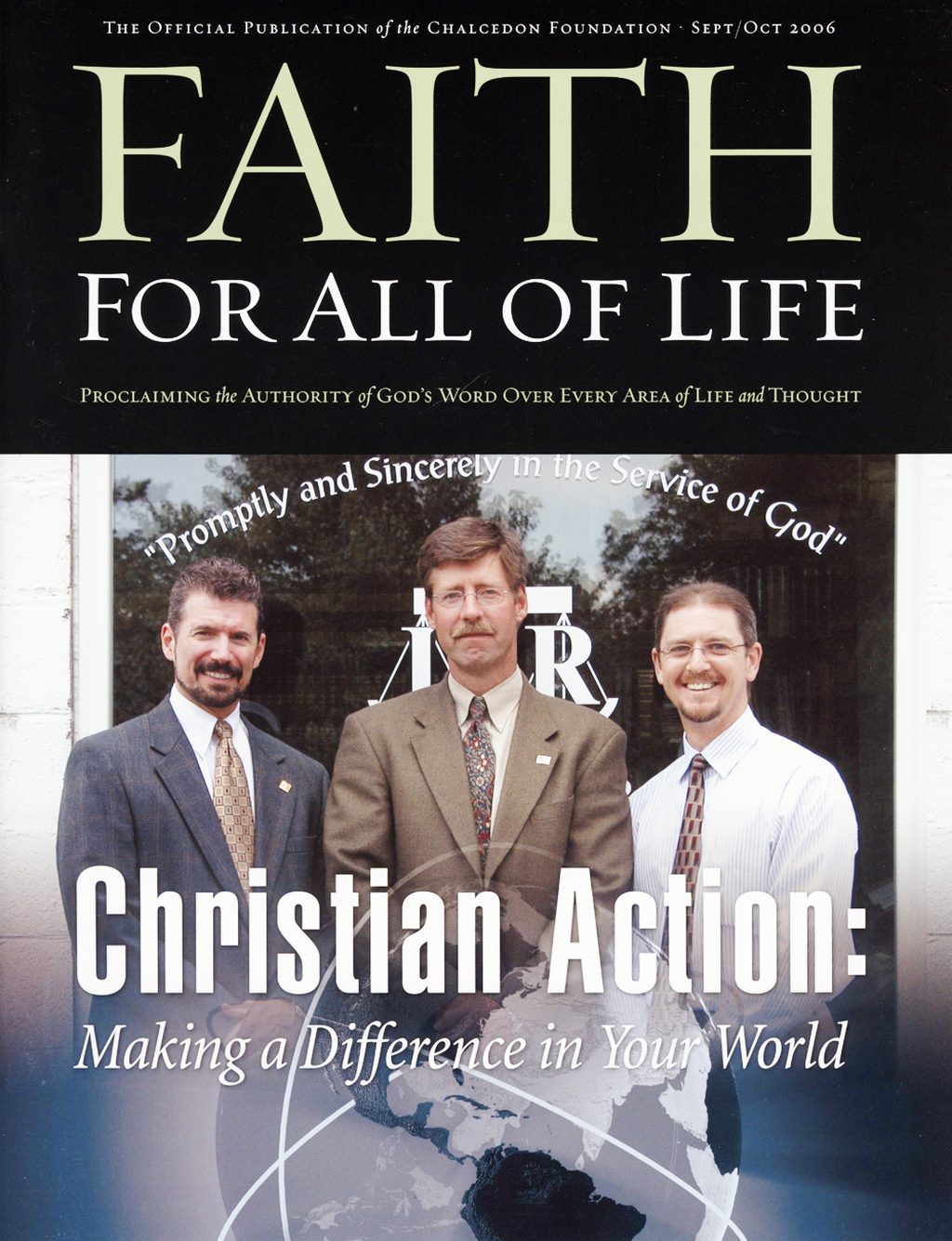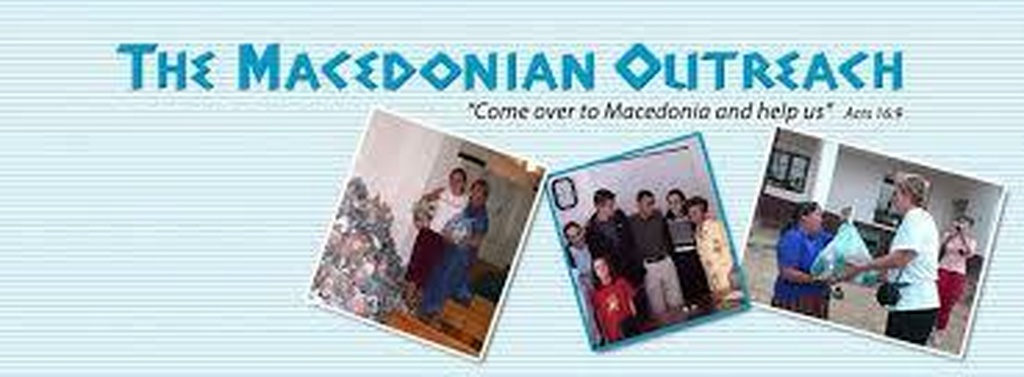
Magazine Issue
Christian Action: Making a Difference in Your World
Centered around a little church in Appomattox, a band of ex–New Yorkers is trying to apply, in the real world, the principles of the Bible and Christian Reconstruction.
September/October 2006 Articles:
Christian Obedience

- R. J. Rushdoony

Macedonian Outreach: The Mission That Resulted When Two Retirees Put Their Faith Into Action

- Mark R. Rushdoony
Recovering from the Political Hangover of the Religious Right
- Christopher J. Ortiz
Stalwarts of Freedom: An Inside Look at The John Birch Society
- Chad Bull
“Let’s go see Rushdoony!”
- Arnold Jagt
Becoming a Modern-Day Levite
- Arnold Jagt
Going Into The Whole World...“Digitally”

- Lee Duigon
Christians in Local Politics: Making a Difference Where You Are

- Lee Duigon
They Are Not All Israel
- Christopher J. Ortiz
Christian Reconstruction Comes to Appomattox

- Lee Duigon